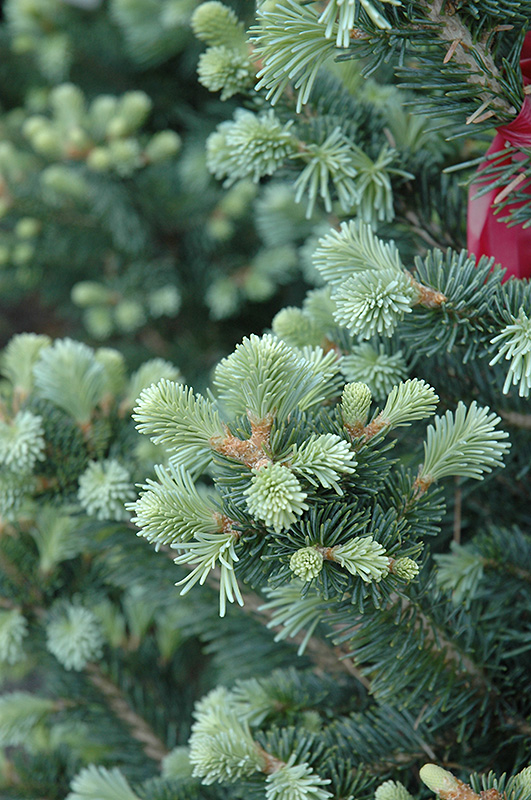>> Home
Arizona Rocky Mountain Fir
Abies lasiocarpa 'Arizonica'
Height: 70 feet
Spread: 50 feet
Sunlight:
![]()
![]()
Hardiness Zone: 4a
Other Names: Corkbark Fir, Subalpine Fir
Description:
An impressive Rocky Mountain fir with distinctly blue foliage all season long, slow growing,and retains its conical habit for many years; tolerates drier conditions than most firs
Ornamental Features
Arizona Rocky Mountain Fir is primarily valued in the landscape for its distinctively pyramidal habit of growth. It has attractive steel blue evergreen foliage which emerges powder blue in spring. The needles are highly ornamental and remain steel blue throughout the winter.
Landscape Attributes
Arizona Rocky Mountain Fir is a dense evergreen tree with a strong central leader and a distinctive and refined pyramidal form. It lends an extremely fine and delicate texture to the landscape composition which can make it a great accent feature on this basis alone.
This is a relatively low maintenance tree, and usually looks its best without pruning, although it will tolerate pruning. It has no significant negative characteristics.
Arizona Rocky Mountain Fir is recommended for the following landscape applications;
- Accent
- Mass Planting
- Hedges/Screening
Planting & Growing
Arizona Rocky Mountain Fir will grow to be about 70 feet tall at maturity, with a spread of 50 feet. It has a low canopy with a typical clearance of 2 feet from the ground, and should not be planted underneath power lines. It grows at a slow rate, and under ideal conditions can be expected to live for 80 years or more.
This tree does best in full sun to partial shade. It prefers to grow in average to moist conditions, and shouldn't be allowed to dry out. It is not particular as to soil pH, but grows best in sandy soils. It is quite intolerant of urban pollution, therefore inner city or urban streetside plantings are best avoided. This is a selection of a native North American species.
